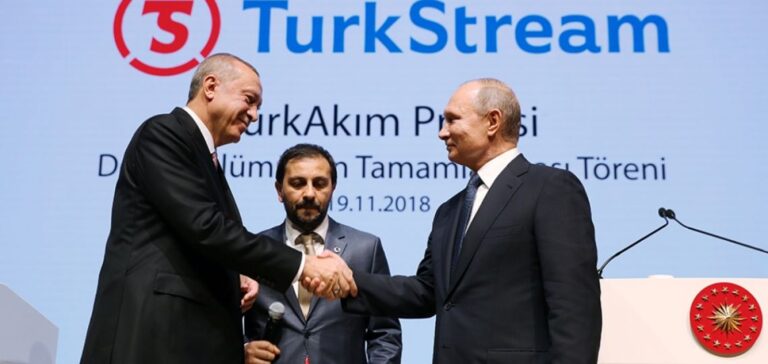Russia has accused Ukraine of launching a new attack on the TurkStream pipeline on March 1, 2025, an essential infrastructure that ensures the transport of Russian gas to Europe. According to the Russian Ministry of Defence, the attack involved three drones targeting the Rousskaya station, located in the southern Krasnodar region, near the village of Gaï-Kodzor. The drones were intercepted and destroyed by Russian air defence systems without causing any disruption to the station’s operations. This incident follows a similar attack in January, during which Ukrainian drones caused minor damage to a building and some equipment.
A strategic pipeline for Southeast Europe
The TurkStream pipeline, inaugurated in 2020, is a vital link for gas supply to Southeastern and Southern Europe, particularly Hungary and some Balkan countries. This underwater pipeline, with an annual capacity of 31.5 billion cubic metres, connects southern Russia to Turkey. Since the cessation of deliveries via Ukraine on January 1, 2025, it has become the only functioning transit route for Russian gas to Europe.
Attacks seen as deliberate disruption
Moscow views these attacks as a Ukrainian attempt to disrupt gas deliveries to Europe, amidst escalating geopolitical tensions. In response, Sergey Lavrov, the Russian Foreign Minister, has urged Ankara to exert pressure on Kyiv to end these actions. Turkish Foreign Minister Hakan Fidan has stated that appropriate measures will be taken to prevent further escalation.






















